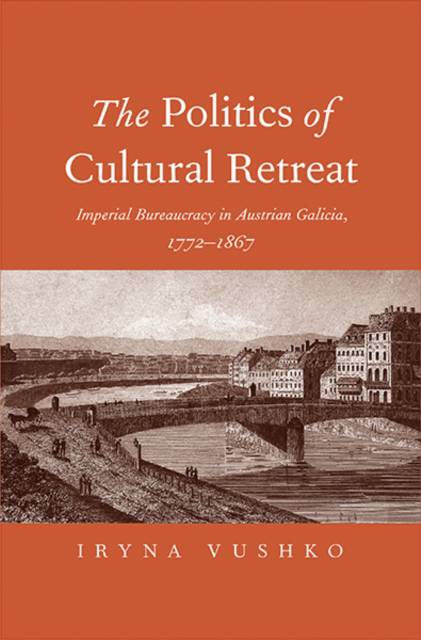
- Afhalen na 1 uur in een winkel met voorraad
- Gratis thuislevering in België vanaf € 30
- Ruim aanbod met 7 miljoen producten
- Afhalen na 1 uur in een winkel met voorraad
- Gratis thuislevering in België vanaf € 30
- Ruim aanbod met 7 miljoen producten
Zoeken
The Politics of Cultural Retreat
Imperial Bureaucracy in Austrian Galicia, 1772-1867
Iryna Vushko
Hardcover | Engels
€ 161,45
+ 322 punten
Omschrijving
An illuminating history of state-building, nationalism, and bureaucracy, this book tells the story of how an international cohort of Austrian officials from Bohemia, Hungary, the Hapsburg Netherlands, Italy, and several German states administered Galicia from its annexation from Poland-Lithuania in 1772 until the beginning of Polish autonomy in 1867. Historian Iryna Vushko examines the interactions between these German-speaking bureaucrats and the local Galician population of Poles, Ukrainians, and Jews. She reveals how Enlightenment-inspired theories of modernity and supranational uniformity essentially backfired, ultimately bringing about results that starkly contradicted the original intentions and ideals of the imperial governors.
Specificaties
Betrokkenen
- Auteur(s):
- Uitgeverij:
Inhoud
- Aantal bladzijden:
- 328
- Taal:
- Engels
Eigenschappen
- Productcode (EAN):
- 9780300207279
- Verschijningsdatum:
- 26/05/2015
- Uitvoering:
- Hardcover
- Formaat:
- Genaaid
- Afmetingen:
- 163 mm x 239 mm
- Gewicht:
- 589 g

Alleen bij Standaard Boekhandel
+ 322 punten op je klantenkaart van Standaard Boekhandel
Beoordelingen
We publiceren alleen reviews die voldoen aan de voorwaarden voor reviews. Bekijk onze voorwaarden voor reviews.











